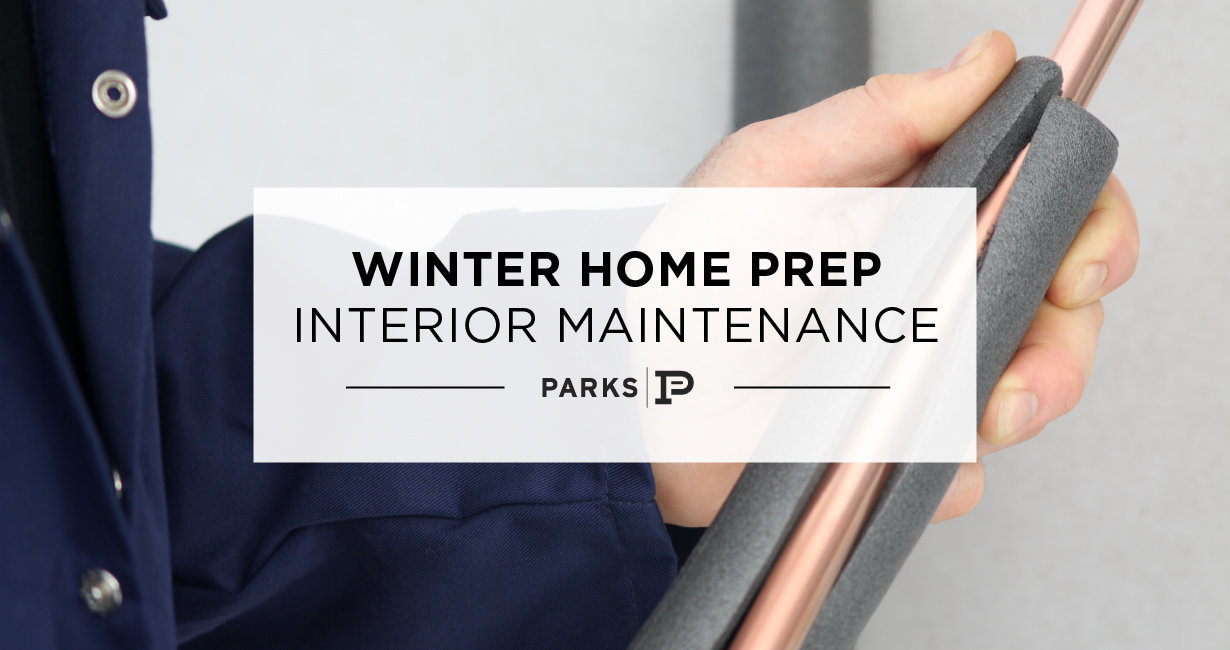
Ready or not, here winter comes! While it’s easy to think about the holiday lists, and social schedule coming up - it’s easy to forget (err, ignore?), the demands of winter on our homes. While not as fun, it is certainly worth your future heating bills, and repairs-not-needed to take some time and go through what you need to do to prepare your home for the winter season!
We’ve rounded up some of the most commonly recommended winterizing tips for you:
One Last A/C Look
Maybe counterintuitive, but before you say goodbye to the A/C, doing just a little bit of cleaning and prep for the winter will be worth your time. By cleaning the fan blades and condensing coils, and covering your unit with a weatherproof cover, you will extend the life of your A/C. If you have window units, don’t forget to remove to help stop cold drafts from coming in through that open window.
Furnace Check
We’re moving right along from A/C to furnace! Before you turn on the furnace (although it’s never too late), do a full check on your A/C. Try your hand at a DIY check with these maintenance tips (especially if you have a new system or it’s been less than a year since a maintenance check)- or consult a professional. The service could cost you $100, but avoiding a major repair or replacement in the future is worth the grand that would cost you.
Program That Thermostat
Diving into winter with a non-stop blasting heater is going to run you a pretty penny! While certainly not a “must-have”, setting up a programmable thermostat can help greatly reduce your heating bill. Think about all the time spent heating the house while no one is home! With a programmable thermostat, you can program the heat to ease up when you know no one is home, saving you on that bill.
Reverse Your Fans
Speaking of heating bills - you can save up to 10% just by reversing your ceiling fans and bringing the hot air back down from the ceiling.
Vents & Ducts
Make sure you change out your air AND dryer vent filters (and have extra on hand to change more often than usual in the winter months to save on the heating bill), as well as cleaning out the air ducts.
Pipes, Faucets & Tanks
Covering water pipes with pre-slit foam tubes (look very similar to pool noodles), helps multi-fold with hot water. One, you aren’t losing heat as the hot water travels, and therefore aren’t having to heat it up to as high of a temperature (so you are paying less). You also won’t have to wait as long for the hot water when you turn on the faucet. (P.S. You can also buy an insulating cover for your hot water heater if you feel the tank is losing warmth).
Check for Leaks and Drafts
The easiest and most cost-effective way to fill cracks along doors and windows is typically with rope caulk, but there are endless “weatherproofing” options out there with strips, sealable plastic, etc. If nothing else, be sure you are taking care of the draft that often comes in under doors to the outside. (Even a rolled-up towel will do!)
Think About Humidity
If you have a house-wide dehumidifier in your basement, remember to change it to the winter setting. Have a portable humidifier? Break that out, give it a clean with vinegar and distilled water and relieve some of the “dry air” that winter brings along. Not in the market for a new appliance? Check Amazon for single room humidifiers with great reviews! (P.S. You should also clean your humidifier a few times throughout the winter season while in use.)
Fireplace
Before you even think about turning on that fireplace, check for obstructions and clean it! Many house fires start in the winter from something being stuck or caught in the chimney. Not to mention, who wants a years’ worth of dust and dirt lingering inside their house. If it’s been more than a year or looks like it’s going to take more than a little DIY cleaning, get a professional - it can take serious work! Tip: If you don’t have one already, think about getting a metal screen for the top of the chimney - keeps anything large from winding up in the chimney, and offers great peace of mind.
Check Those Detectors
There are more home fires in the winter than at any other time of the year due to furnaces having to supply the house’s heat. It’s always a good idea to check your smoke and carbon monoxide detectors before getting too far into the heat-needing season!
(Optional: Winter Energy Audits)
For a more detailed rundown on exactly what you can do for your home’s needs when it comes to saving energy, hiring a professional energy auditor could be your best bet. They will look in and around your home and identify areas that could be improved for energy and cost savings.
Posted by Parks Compass on

Leave A Comment